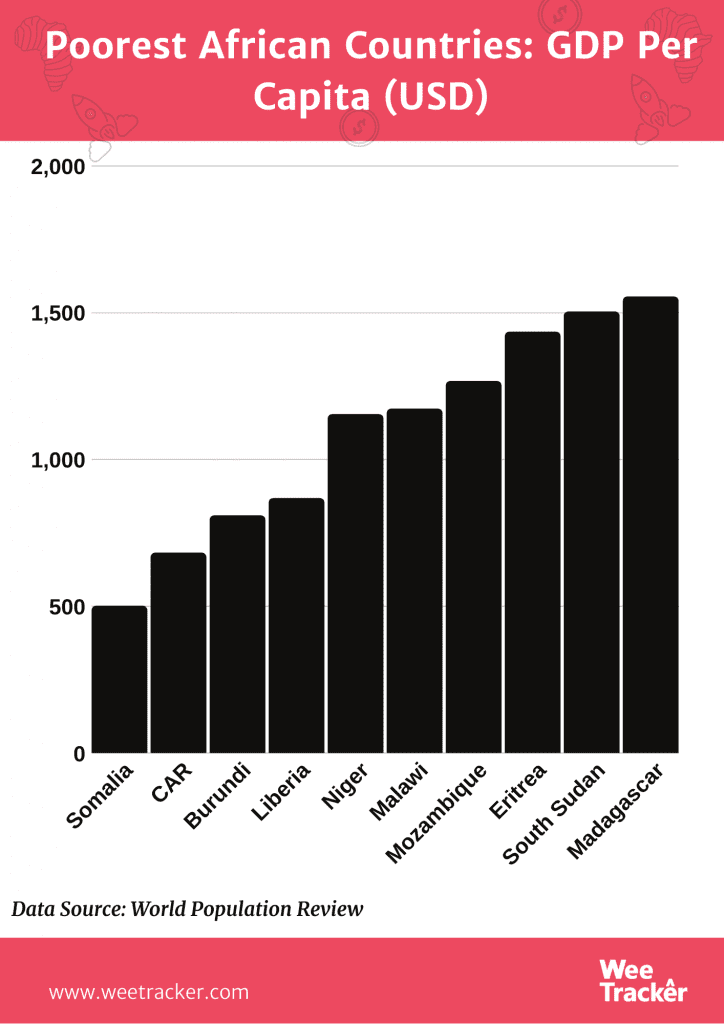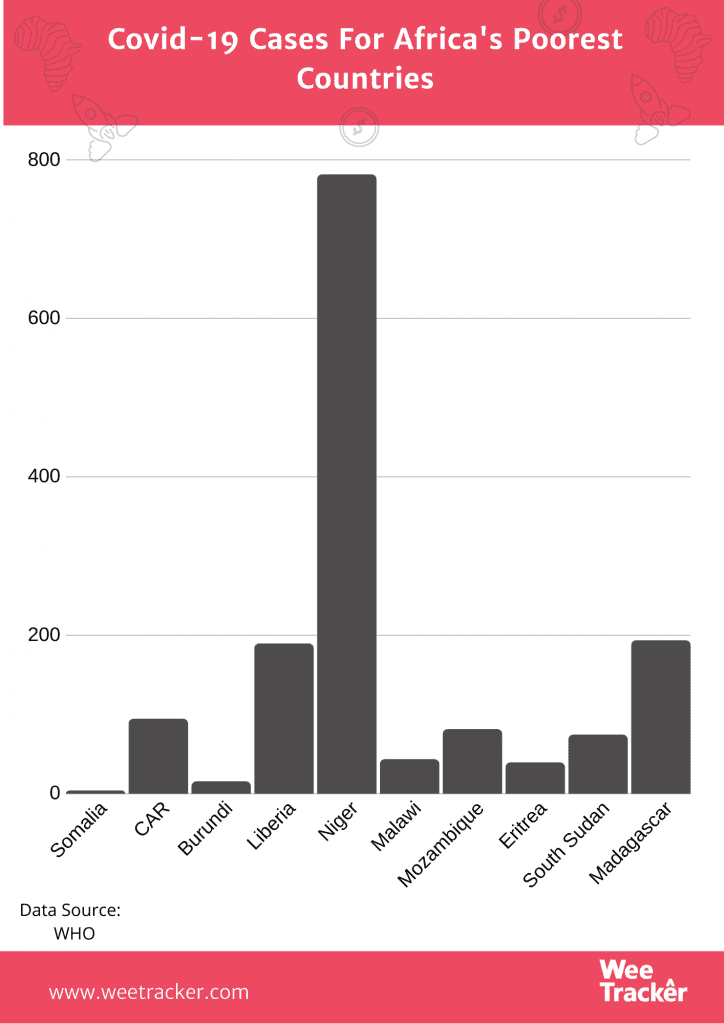Despite Having Low Covid-19 Cases, Africa’s Poorest Countries Have Opted Western-Style Lockdowns

By definition, some attributes of a poor country are high unemployment, and low level of per capita income. These, combined with other deficiencies, make such nations unable to afford what more developed countries can — lockdowns, for example.
In the wake of the coronavirus pandemic, even the poorest countries in Africa are adopting Western-style lockdowns to curb the spread of the virus.
While such confinement measures have been said to be ineffective for Africa, more economically challenged nations on the continent are going with the wave despite recording relatively low cases.
The Poor
More than half of the countries within Africa are considered as the poorest in the world. More so, the region has lower levels of economic success than the other six continents that exist. In as much as growth is happening, especially in the past decade, the improvement is not at a pace many of the countries would like it to be.
While inclusive growth occurs slowly, Africa is home to the world’s fastest-growing economies. Nevertheless, the recent coronavirus outbreak is taking a huge toll on national wealths, as the entire Sub-Saharan Africa is set to tip into into its first recession in the last 25 years.
Only 1 of 55 countries in Africa has not recorded a single case of coronavirus: Lesotho. However, this has been unofficially blamed on the lack of testing capacity, judging by the fact that country is bound on all sides by South Africa—one of the region’s most-hit places.
According to the 2020 World Population Review, Somalia is the poorest country in Africa, followed by the Central Africa Republic, Burundi, and Liberia. The report notes that the poorest countries in Africa are also the poorest countries in the world.

On the surface, it means that these mentioned find it harder to cater for their population sizes compared to other countries of the world. However, a reasonable number of these countries have take on a measure analyzed as unfit for them given their current economic predicaments.
Confined Places
It is no news that Somalia is one of the most conflict-torn countries in Africa. That coupled with its level of poverty has put the country in a very unfriendly place, but it did not stop the government from executing a lockdown, particularly in its capital, Mogadishu. Somalia currently has
928 cases of Covid-19.
But, more interestingly, the Western African nation of Liberia has just 189 cases of the virus, currently one of the lowest considering the recent spike in cases. Since April 11th, the nation has been on lockdown, as it extended the confinement by another 2 weeks on April 24th.
Liberia ordered the closure of non-essential businesses and the restriction of movement, all of which have resulted in a mandatory stay-at-home lifestyle for its citizens. Current stats show that Liberia is the fourth-poorest country in Africa. Yet, it is making and extending calls even the continent’s largest economies are looking to desist from.
Because of the economic impacts of coronavirus and lockdowns, even Africa’s most advanced economy, South Africa, is looking to ease its restrictions despite having as much as 8,232 cases. The same goes for Ghana, who was the first to lift a lockdown in Africa, supposedly to reduce the effects it has on the country’s poor population.
No Matter?
Another case is that of Mozambique, which has a GDP per capita of USD
1,266, the eighth-lowest in Africa. On the coronavirus side, it has just
81 cases. Well, the Southern African country has been on lockdown since the first day of April. At the end of last month, President Filipe Nyusi announced that the nation would go for another month to contain the virus.

The most affected country in Africa, South Africa, went for just one month, after which it decided to ease things. Africa’s largest economy, Nigeria, restricted non-essential businesses for only one month before easing, despite mounting cases.
Only a low 2 percent of households in Mozambique are ready or can afford a lockdown, and just 14 percent are partially ready. These figures are based on the availability of essential amenities such as electricity, safe drinking water, employment and improved sanitation.
For similar housing problems in Ethiopia and Malawi, their respective governments have not been able to impose a strict lockdown. However, poverty also comes into play.
In Mozambique, for instance, it remains high. Up to 46.1 percent of the population lived below the national poverty line in 2014/15, down only by 6.7 percentage points from rates prevailing at the beginning of the 2000s.
As a result of the lockdown, smallholder farmers now sell their products way below the market price, thanks in part to the breakdown of the supply chain. They are struggling to buy basic commodities due to reduced income from crop sales. Also, the lockdown regulations have impacted the supply of agrarian labour in rural areas.
A common opinion is: if lockdown policies are necessary to halt the virus’ spread, the government will also need to take extraordinary measures to provide some basic services for people living under it.
Square Peg, Round Hole
Poor African countries with lockdowns despite having low Covid-19 cases is important to note because Western-style lockdowns don’t seem to be working in the continent.
Being that African leaders were caught unprepared for the outbreak, they hardly had the time to devise a homegrown system other than lockdowns to contain the spread of the virus.
The rush to copy countries like Italy, China, Spain and Germany, among others, has made room for widespread social instability and rifts, hunger, and serious economic uncertainties. Vendors, small-scale farmers, undocumented migrants and day-to-day earners are struggling to survive the pandemic as well as the lockdowns.
This is why informal vendors protested Malawi’s coronavirus lockdown, before the country’s high court blocked its execution. In Zimbabwe, hell is close to breaking loose as small traders, peasant and vendors overwhelmed by economic and humanitarian challenges.
In our main country case study, Mozambique, peasantry constitutes some 80 percent of the economically active population, accounting for about 90 percent of the food available in the country.
It is a possibility that some of these poor countries’ Covid-19 cases are low due to their significant inabilities to either travel abroad or leverage on tourism. In any case, it boils back down to poverty, a recurrent ‘African topic in these trying times.
Photo by Alex Kim via Unsplash